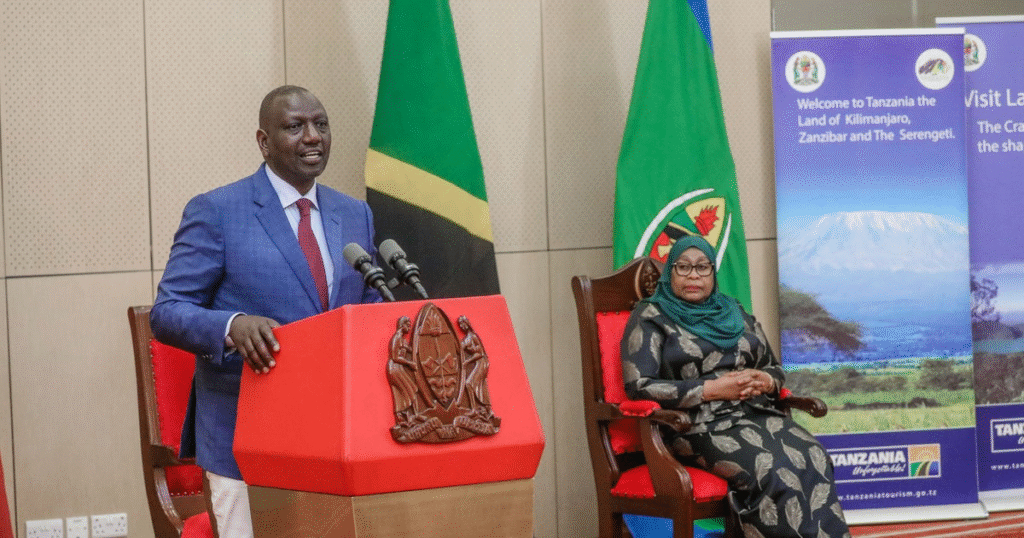
A new directive from Tanzania barring foreign nationals from owning or operating small-scale businesses has triggered backlash from neighbouring Kenya, reigniting longstanding economic and political tensions between the two East African Community (EAC) partners.
The ban announced earlier this week by Tanzania’s Minister of Trade and Industry, Dr. Selemani Jafo, affects 15 business sectors, including mobile money transfer services, tour guiding, small-scale mining, local crop purchasing, beauty salons, curio shops, and private radio and TV ventures.
Dr. Jafo defended the move, saying it was aimed at reclaiming the informal sector for Tanzanian citizens. “Foreigners have increasingly entered spaces that were originally meant for local entrepreneurs,” he stated. “This decision is about protecting opportunities for Tanzanians and redirecting foreign investors to larger-scale ventures that support national development.”
The measure has received broad domestic support, particularly among traders in Dar es Salaam’s busy Kariakoo district, who have long expressed frustration over competition from foreign traders, especially Chinese nationals.
“This is a step in the right direction. It’s not xenophobia—it’s about fairness,” said Severine Mushi, chairperson of the Kariakoo Traders’ Association. “Our livelihoods were at stake. This will restore balance.”
Violators of the ban face stiff penalties, including up to six months in jail, loss of work permits and visas, and heavy fines.
Kenya’s Strong Rebuttal
In Kenya, however the directive has been met with alarm and criticism, with officials warning that the ban violates EAC protocols that uphold the free movement of goods, services, and people across member states.
Kenya’s Trade Minister, Lee Kinyanjui, called for immediate dialogue. “This move hurts both Tanzania’s and Kenya’s economies. It contradicts the spirit and letter of regional integration,” he said in a Wednesday press statement.
Veteran Kenyan hotelier and regional business advocate Mohammed Hersi also weighed in. “Protectionist policies rarely end well. We should be removing barriers, not building them,” he wrote on X, formerly Twitter.
Social media in Kenya erupted with commentary, with many users calling the ban a blow to EAC cohesion. One user posted, “Tanzanians are doing small businesses in Kenya without any trouble. This makes it clear Tanzania isn’t serious about East African unity.”
A History of Strained Relations
Tanzania and Kenya have had a bumpy history of economic cooperation, marked by occasional trade disputes and non-tariff barriers. Tanzania’s protectionist stance seen previously in import bans and unilateral tariffs has drawn criticism from regional partners.
Earlier this year, diplomatic tensions flared after several Kenyans traveling to Dar es Salaam to observe the treason trial of Tanzanian opposition figure Tundu Lissu were detained and deported. Among them was renowned activist Boniface Mwangi, who later alleged he was tortured along with Ugandan activist Agather Atuhaire.
With Tanzania’s general elections approaching in October, some analysts suggest the crackdown on foreign traders may be politically motivated, aimed at boosting nationalistic sentiment and consolidating support for the ruling Chama Cha Mapinduzi (CCM) party.
As regional leaders prepare for upcoming EAC meetings, the fate of cross-border trade and unity now hangs in the balance. Whether diplomacy can calm the storm remains to be seen.